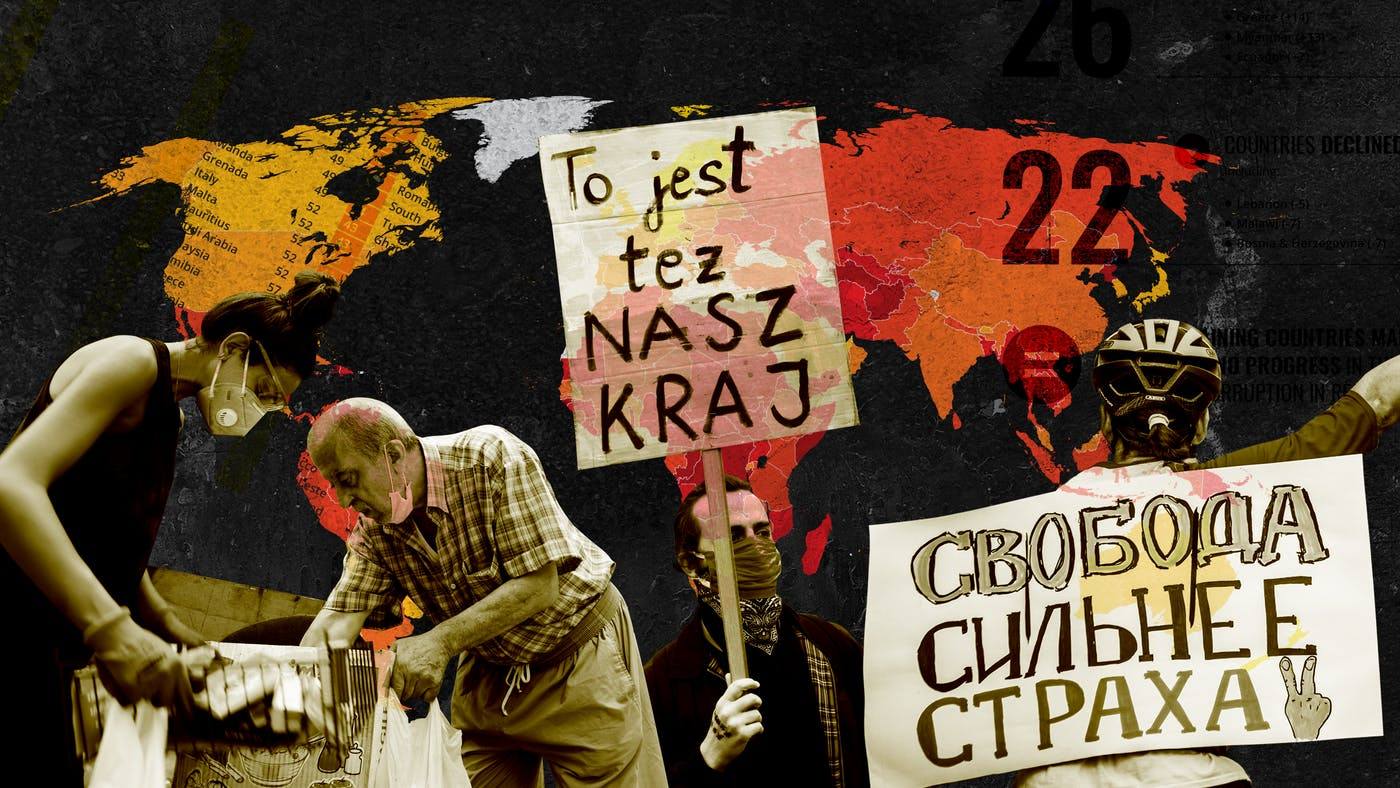
Transparency International – Corrupt Perception Index: Global Highlights
REPORT FROM Transparency International | January 28, 2021
This year’s Corruption Perceptions Index (CPI) paints a grim picture of the state of corruption worldwide.
While most countries have made little to no progress in tackling corruption in almost a decade, more than two-thirds of countries score below 50.
Our research shows corruption not only undermines the global health response to COVID-19, but also contributes to a continuing crisis of democracy.
COVID-19 is not just a health and economic crisis. It’s a corruption crisis. And one that we’re currently failing to manage.
Delia Ferreira Rubio – Chair, Transparency International
In a nutshell
The index, which ranks 180 countries and territories by their perceived levels of public sector corruption according to experts and businesspeople, uses a scale of zero to 100, where zero is highly corrupt and 100 is very clean.
Like previous years, more than two-thirds of countries score below 50 on this year’s CPI, with an average score of just 43. The data shows that despite some progress, most countries still fail to tackle corruption effectively.
Results
The top countries on the CPI are Denmark and New Zealand, with scores of 88, followed by Finland, Singapore, Sweden and Switzerland, with scores of 85 each.
The bottom countries are South Sudan and Somalia, with scores of 12 each, followed by Syria (14), Yemen (15) and Venezuela (15).
Since 2012, 26 countries improved their CPI scores, including Greece, Myanmar and Ecuador. In the same period, 22 countries decreased their scores, including Lebanon, Malawi and Bosnia & Herzegovina.
COVID-19 and corruption
Corruption undermines an equitable response to COVID-19 and other crises, highlighting the importance of transparency and anti-corruption measures in emergency situations.
Reports show corruption is prevalent across the COVID-19 response, from bribery for COVID-19 tests, treatment and other health services, to public procurement of medical supplies and overall emergency preparedness.
Our analysis reveals that countries that perform well on the index invest more in health care, are better able to provide universal coverage and are less likely to violate democratic norms or the rule of law when responding to a crisis.
Corruption and health spending
Countries that perform well on the CPI invest more in health care.
Corruption and COVID-19 democratic violations
Countries that perform well on the CPI are less likely to violate democratic norms and institutions.
Regional results
The highest scoring region is Western Europe and the European Union with an average score of 66. The lowest scoring regions are Sub-Saharan Africa (32) and Eastern Europe and Central Asia (36).
Trouble at the Top
Even countries with higher scores on the CPI have had their share of corruption challenges, including a lack of transparency in public spending in response to COVID-19.
Recommendations
To fight COVID-19 and curb corruption, it is essential for countries to:
1. Strengthen oversight institutions
The COVID-19 response exposed vulnerabilities of weak oversight and inadequate transparency. To ensure resources reach those most in need and are not subject to theft by the corrupt, anti-corruption authorities and oversight institutions must have sufficient funds, resources and independence to perform their duties.
2. Ensure open and transparent contracting
Many governments have drastically relaxed procurement processes. These rushed and opaque procedures provide ample opportunity for corruption and the diversion of public resources. Contracting processes must remain open and transparent to combat wrongdoing, identify conflicts of interest and ensure fair pricing.
3. Defend democracy, promote civic space
The COVID-19 crisis exacerbated democratic decline, with some governments exploiting the pandemic to suspend parliaments, renounce public accountability mechanisms and incite violence against dissidents. To defend civic space, civil society groups and the media must have the enabling conditions to hold governments accountable.
4. Publish relevant data, guarantee access
The publication of disaggregated data on spending and distribution of resources is particularly relevant in emergency situations, to ensure fair and equitable policy responses. Governments should also ensure people receive easy, accessible, timely and meaningful information by guaranteeing their right to access information.